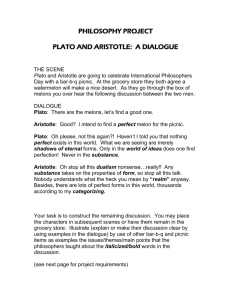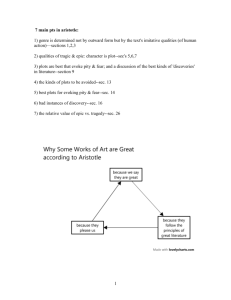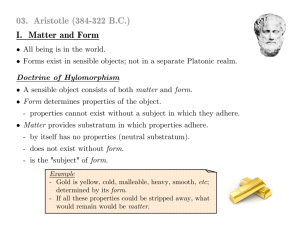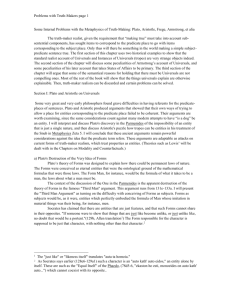Aristotle Notes
advertisement
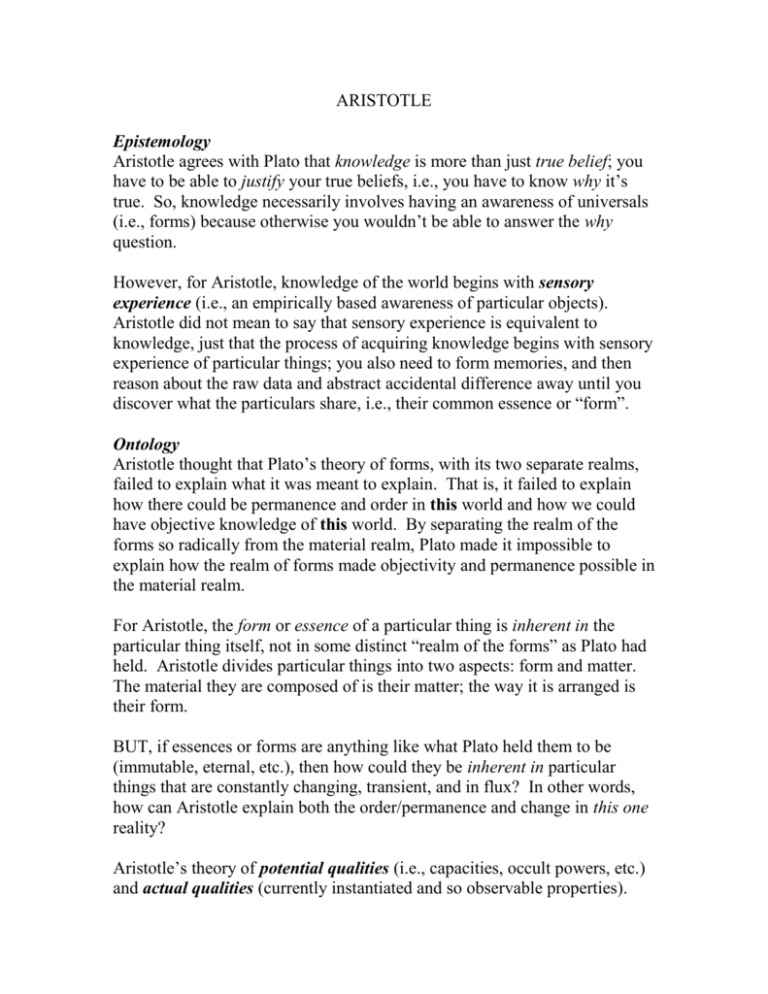
ARISTOTLE Epistemology Aristotle agrees with Plato that knowledge is more than just true belief; you have to be able to justify your true beliefs, i.e., you have to know why it’s true. So, knowledge necessarily involves having an awareness of universals (i.e., forms) because otherwise you wouldn’t be able to answer the why question. However, for Aristotle, knowledge of the world begins with sensory experience (i.e., an empirically based awareness of particular objects). Aristotle did not mean to say that sensory experience is equivalent to knowledge, just that the process of acquiring knowledge begins with sensory experience of particular things; you also need to form memories, and then reason about the raw data and abstract accidental difference away until you discover what the particulars share, i.e., their common essence or “form”. Ontology Aristotle thought that Plato’s theory of forms, with its two separate realms, failed to explain what it was meant to explain. That is, it failed to explain how there could be permanence and order in this world and how we could have objective knowledge of this world. By separating the realm of the forms so radically from the material realm, Plato made it impossible to explain how the realm of forms made objectivity and permanence possible in the material realm. For Aristotle, the form or essence of a particular thing is inherent in the particular thing itself, not in some distinct “realm of the forms” as Plato had held. Aristotle divides particular things into two aspects: form and matter. The material they are composed of is their matter; the way it is arranged is their form. BUT, if essences or forms are anything like what Plato held them to be (immutable, eternal, etc.), then how could they be inherent in particular things that are constantly changing, transient, and in flux? In other words, how can Aristotle explain both the order/permanence and change in this one reality? Aristotle’s theory of potential qualities (i.e., capacities, occult powers, etc.) and actual qualities (currently instantiated and so observable properties).





